 Both Vodafone and France Telecom are now considering a rival bid for Virgin Mobile, following a “unanimous” decision by the Virgin board to reject the starting offer from NTL. Financial sources say both companies have asked to look at the Virgin Mobile books.
Both Vodafone and France Telecom are now considering a rival bid for Virgin Mobile, following a “unanimous” decision by the Virgin board to reject the starting offer from NTL. Financial sources say both companies have asked to look at the Virgin Mobile books.
This means that if NTL wants to buy the brand and put it on all NTL products, it will have to come up with a bigger offer. NTL, waiting for the Stock Exchange to open before making any announcement, is going to have trouble finding the money after its big takeover offer for Telewest, say finance analysts.
It also means a nasty gap in the future of T-Mobile, which provides the network for Virgin as a virtual network; neither France Telecom nor Vodafone would renew that contract, and the loss could be crushing, following T-Mobile’s defeat in the contest to buy O2.
Virgin founder Sir Richard Branson has told reporters he is sure the deal will go ahead.
 From Australia, Forbes quotes Branson as saying that the new company will be formed and will be called Virgin TV – all it will take, he added, is a small increase in the offer. He said the current offer under-valued the company in the eyes of his fellow directors, but that “the difference between what they’ve asked for and what NTL has offered is not considerable in financial terms.”
From Australia, Forbes quotes Branson as saying that the new company will be formed and will be called Virgin TV – all it will take, he added, is a small increase in the offer. He said the current offer under-valued the company in the eyes of his fellow directors, but that “the difference between what they’ve asked for and what NTL has offered is not considerable in financial terms.”
According to the Times, the difference is between the current offer of £817 million and a hoped-for bid of £891m – increasing the bid to 345 per share while the Guardian thinks the extra needed is rather less at 340 pence.
Guy Kewney write extensively, and quite brilliantly, in lots of places, including NewsWireless.net
 The Digital-Lifestyles office is in a state of total confusion over major UK broadcaster,
The Digital-Lifestyles office is in a state of total confusion over major UK broadcaster,  The school leavers departing since the wide use of the Internet, will not have to resort to third-party services – the majority of them will have an online presence, allowing direct contact, if desired.
The school leavers departing since the wide use of the Internet, will not have to resort to third-party services – the majority of them will have an online presence, allowing direct contact, if desired.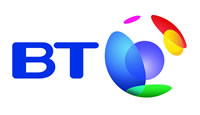 BT have been enjoying government payouts to maintain their networks.
BT have been enjoying government payouts to maintain their networks. Broadband adoption in the UK may soon be reaching its peak, according to a new report from Datamonitor.
Broadband adoption in the UK may soon be reaching its peak, according to a new report from Datamonitor. Although we’re nearly broadbanded out in Europe, the report sees excellent opportunities for growth in less mature markets.
Although we’re nearly broadbanded out in Europe, the report sees excellent opportunities for growth in less mature markets.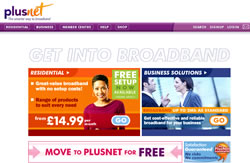 MetroNet, UK broadband ISP, has been purchased by PlusNet in an all cash deal for £1.7m.
MetroNet, UK broadband ISP, has been purchased by PlusNet in an all cash deal for £1.7m. MetroNet has grown since their start in 2003 to 16,000 subscribers, turning over £2.1m bringing an operating profit of £40,000 in the year ended 31 March 2005. They have net cash of over
MetroNet has grown since their start in 2003 to 16,000 subscribers, turning over £2.1m bringing an operating profit of £40,000 in the year ended 31 March 2005. They have net cash of over  We, and we assume other MetroNet subscribers, hope that the high quality of service that we’ve received from them continues, without interruption, in the transition to PlusNet.
We, and we assume other MetroNet subscribers, hope that the high quality of service that we’ve received from them continues, without interruption, in the transition to PlusNet.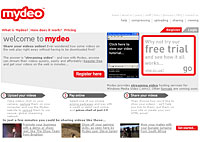 Mydeo, the UK consumer video streaming company, has teamed up with UK ISP Tiscali to offer streaming video sharing services to broadband users of the UK Tiscali Website.
Mydeo, the UK consumer video streaming company, has teamed up with UK ISP Tiscali to offer streaming video sharing services to broadband users of the UK Tiscali Website. Members will be able to stream their cinematic masterpieces on a pay-as-you-go basis, and will only have to shell out when they choose to upload a video. Users can pay in Euros, UK Pounds or US Dollars.
Members will be able to stream their cinematic masterpieces on a pay-as-you-go basis, and will only have to shell out when they choose to upload a video. Users can pay in Euros, UK Pounds or US Dollars.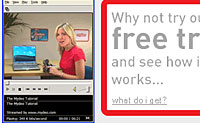 “Mydeo is really easy to use and offers lots of help and support for our members who may be putting video on the Web for the first time,” Hole insisted.
“Mydeo is really easy to use and offers lots of help and support for our members who may be putting video on the Web for the first time,” Hole insisted.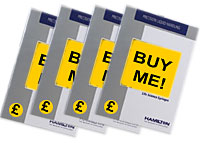 The Internet was supposed to herald in an age of paperless offices, online browsing and tree-untroubling electronic mail, but it seems that when it comes to flogging goods, the trusty old print catalogue still rules the roost.
The Internet was supposed to herald in an age of paperless offices, online browsing and tree-untroubling electronic mail, but it seems that when it comes to flogging goods, the trusty old print catalogue still rules the roost. The survey found that old fashioned catalogues remain one of the most effective promotional channels for generating online orders, with 60% of survey respondents currently licking stamps on catalogues and brochures to be sent to customers in an attempt to increase online sales.
The survey found that old fashioned catalogues remain one of the most effective promotional channels for generating online orders, with 60% of survey respondents currently licking stamps on catalogues and brochures to be sent to customers in an attempt to increase online sales. Additionally, the survey revealed that 55% of retailers planned to follow the annoying trend set by High Street stores and “extend” the Christmas buying period by encouraging consumers to buy earlier (If only we could “extend” the Christmas holiday period too).
Additionally, the survey revealed that 55% of retailers planned to follow the annoying trend set by High Street stores and “extend” the Christmas buying period by encouraging consumers to buy earlier (If only we could “extend” the Christmas holiday period too). Around 80% of consumers are expected to buy at least a quarter of their Christmas purchases online this year – up a mighty 15% over last year.
Around 80% of consumers are expected to buy at least a quarter of their Christmas purchases online this year – up a mighty 15% over last year.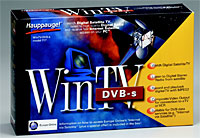 Hauppauge Digital have whipped out a new add-on card to convert a boring old PC into a multimedia-tastic satellite TV receiver.
Hauppauge Digital have whipped out a new add-on card to convert a boring old PC into a multimedia-tastic satellite TV receiver. Freesat will be the satellite equivalent of Freeview,” said Yehia Oweiss, Managing Director of Hauppauge Digital. “Already broadcasting BBC, the service will be available to all UK households and bring free digital TV to the 25 per cent who are outside Freeview’s area. Consumers can buy our Freesat tuner now and enjoy many digital channels now, with more being added all the time.”
Freesat will be the satellite equivalent of Freeview,” said Yehia Oweiss, Managing Director of Hauppauge Digital. “Already broadcasting BBC, the service will be available to all UK households and bring free digital TV to the 25 per cent who are outside Freeview’s area. Consumers can buy our Freesat tuner now and enjoy many digital channels now, with more being added all the time.” Ofcom estimates that the digital switchover programme will release up to 112 MHz of spectrum in the UHF (Ultra High Frequency) band for new uses. The UHF band is prime spectrum, because it offers a technically valuable combination of capacity (bandwidth) and range.
Ofcom estimates that the digital switchover programme will release up to 112 MHz of spectrum in the UHF (Ultra High Frequency) band for new uses. The UHF band is prime spectrum, because it offers a technically valuable combination of capacity (bandwidth) and range.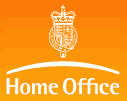 It also provides practical guidance on how to use search effectively but safely, for example, by monitoring or filtering your search results.
It also provides practical guidance on how to use search effectively but safely, for example, by monitoring or filtering your search results.